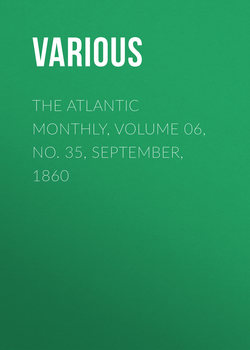Читать книгу The Atlantic Monthly, Volume 06, No. 35, September, 1860 - Various - Страница 9
AMONG THE TREES
SOME NOTES ON SHAKSPEARE
ОглавлениеIn 1849, the discovery by Mr. Payne Collier of a copy of the Works of Shakspeare, known as the folio of 1632, with manuscript notes and emendations of the same or nearly the same date, created a great and general interest in the world of letters.
The marginal notes were said to be in a handwriting not much later than the period when the volume came from the press; and Shakspearian scholars and students of Shakspeare, and the far more numerous class, lovers of Shakspeare, learned and unlearned, received with respectful eagerness a version of his text claiming a date so near to the lifetime of the master that it was impossible to resist the impression that the alterations came to the world with only less weight of authority than if they had been undoubtedly his own.
The general satisfaction of the literary world in the treasure-trove was but little alloyed by the occasional cautiously expressed doubts of some caviller at the authenticity of the newly discovered "curiosity of literature"; the daily newspapers made room in their crowded columns for extracts from the volume; the weekly journals put forth more elaborate articles on its history and contents; and the monthly and quarterly reviews bestowed their longer and more careful criticism upon the new readings of that text, to elucidate which has been the devout industry of some of England's ripest scholars and profoundest thinkers; while the actors, not to be behindhand in a study especially concerning their vocation, adopted with more enthusiasm than discrimination some of the new readings, and showed a laudable acquaintance with the improved version, by exchanging undoubtedly the better for the worse, upon the authority of Mr. Collier's folio, soon after the publication of which I had the ill-fortune to hear a popular actress destroy the effect and meaning of one of the most powerful passages in "Macbeth" by substituting the new for the old reading of the line,—
"What beast was it, then,
That made you break this enterprise to me?"
The cutting antithesis of "What beast" in retort to her husband's assertion, "I dare do all that may become a man," was tamely rendered by the lady, in obedience to Mr. Collier's folio, "What boast was it, then,"—a change that any one possessed of poetical or dramatic perception would have submitted to upon nothing short of the positive demonstration of the author's having so written the passage.
Opinions were, indeed, divided as to the intrinsic merit of the emendations or alterations. Some of the new readings were undoubted improvements, some were unimportant, and others again were beyond all controversy inferior to the established text of the passages; and it seemed not a little difficult to reconcile the critical acumen and poetical insight of many of the corrections with the feebleness and prosaic triviality of others.
Again, it was observed by those conversant with the earlier editions, especially with the little read or valued Oxford edition, that a vast number of the passages given as emendations in Mr. Collier's folio were precisely the same in Hanmer's text. Indeed, it seems not a little remarkable that neither Mr. Collier nor his opponents have thought it worth their while to state that nearly half, and that undoubtedly the better half, of the so-called new readings are to be found in the finely printed, but little esteemed, text of the Oxford Shakspeare. If, indeed, these corrections now come to us with the authority of a critic but little removed from Shakspeare's own time, it is remarkable that Sir Thomas Hanmer's, or rather Mr. Theobald's, ingenuity should have forestalled the fiat
